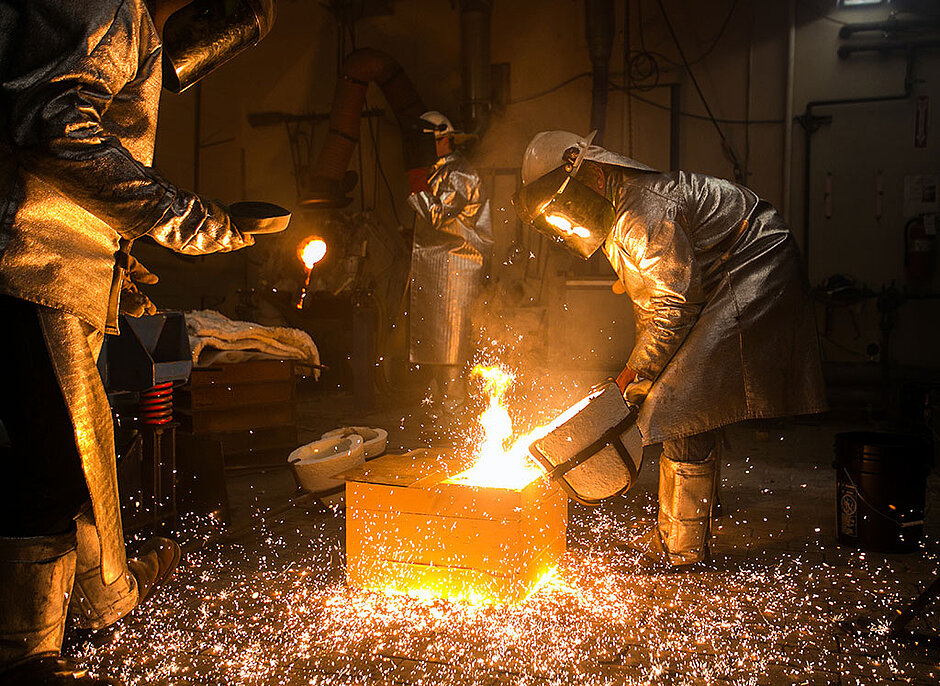For students in the University of Wisconsin-Platteville College of Business, Industry, Life Science and Agriculture, hands-on application of coursework is an essential element of comprehending concepts, particularly for those in the Industrial Studies Department. Richard Furrer, owner of Door County Forgeworks in Sturgeon Bay, Wis., is a blacksmith who crafts metalwork from iron as well as bronze, aluminum, stainless steel and titanium. Students in the Metalcasting Technology II class worked with Furrer to melt an iron-based meteorite, which Furrer supplied, into about 25 ingots that he will later use for the construction of knives and swords.
“The experience brought together metallurgy and art in a unique opportunity for students,” said Dr. Kyle Metzloff, professor of Metalcasting Technology II. “It is interesting to be able to handle material from another world that has somehow made its way to Earth.”
Students combined the meteorite, composed primarily of iron and nickel, with other alloys to produce the desired final result.
“It was necessary to calculate the materials to obtain the correct chemistry to get what we wanted,” said Metzloff. “We were able to model it on a computer first in order to see how the metal would solidify. It’s a learning process, and that’s what UW-Platteville is all about. You don’t know that what you’re designing a model for will actually work unless you really make it and try it out.”
The melting of the meteorite is part of a project led by mechanical engineering major Frankie Roche for the Metalcasting Technology II class. It is just one of several projects that make use of the UW-Platteville Industrial Studies Department metalcasting laboratory, which contains a variety of cutting edge equipment for students to learn and experience key manufacturing processes. Another student project involves crafting the large metal ring used by the UW-Platteville chapter of the American Society of Civil Engineers for their ceremony to instill a reminder of ethics in their professionals. Students have also designed and constructed original woks, frying pans, tractor weights and parts for a forging press.
“In our lab, we can build anything in metal as long as it is within certain size constraints,” said Metzloff.
The metalcasting lab has the capacity to assist with any project related to metallurgy or analysis. It contains machines for welding processes, for treatment of metals and for foundry and metalcasting operations. In the past, students have used the lab to make ends for park benches for the Lakeshore Bench Foundry Project. Students were also featured on Wisconsin Public Television to illustrate manufacturing jobs and the UW-Platteville metalcasting program.
Students in industrial studies, technology education, the American Foundry Society Club and engineering use the metalcasting laboratory.
×


